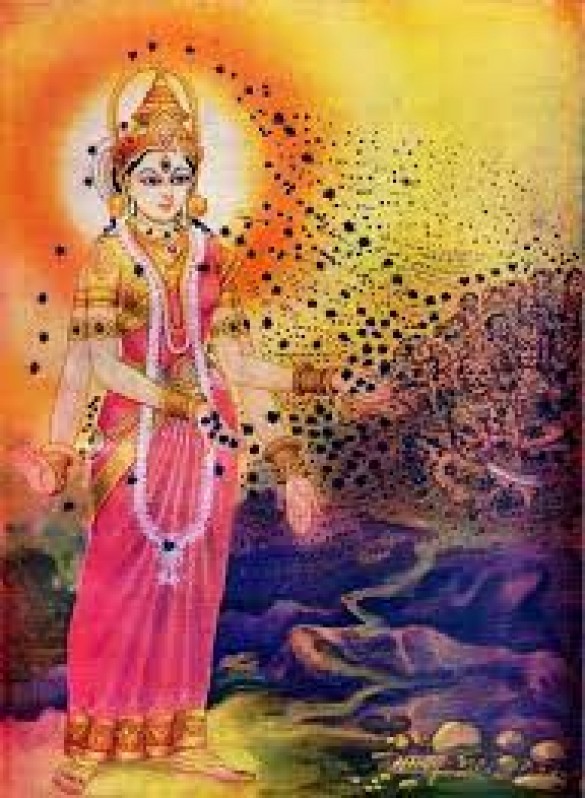
In the colorful tapestry of Hindu mythology, Bhramari emerges as a captivating and intriguing figure, known as the goddess of bees. With her unique symbolism and rich cultural resonance, Bhramari weaves a narrative that explores nature's intricacies and spiritual dimensions. This article delves into the origins, symbolism, and significance of Bhramari, shedding light on her role as a deity that connects the human and natural worlds.
Bhramari's origins can be traced back to ancient Hindu texts, where she finds mention in various contexts. The term "Bhramari" itself is derived from the Sanskrit word for "bee," underscoring her association with these industrious creatures. Bhramari's stories are often intertwined with the narratives of other deities, adding layers of complexity to her character. At the heart of Bhramari's imagery is the bee, a creature revered for its industriousness, organization, and connection to nature. Just as bees work harmoniously within their hive, Bhramari embodies the spirit of collaboration and community. The incessant hum of bees represents the eternal sound that pervades the universe, echoing the cosmic vibrations that underlie creation. Bhramari's symbolism takes on deeper meaning within the realm of yoga and meditation. The practice of Bhramari Pranayama, or "bee breath," involves creating a humming sound similar to that of a bee. This technique is believed to calm the mind, reduce stress, and promote inner harmony. Bhramari, as the goddess of bees, thus becomes a guide in the pursuit of mental tranquility and spiritual growth.
Bhramari's association with bees reflects the Hindu perspective of divinity in nature. The interconnectedness of all living beings is highlighted through her symbolism, reinforcing the notion that every creature, no matter how small, plays a vital role in the grand tapestry of existence. Bhramari invites contemplation on the profound relationship between humans and the natural world. Bhramari's presence is not limited to mythology alone; it resonates in various cultural expressions. Temples dedicated to her can be found in regions across India, where devotees seek blessings for protection, fertility, and overall well-being. Festivals celebrating Bhramari and her connection to bees offer an opportunity for communities to come together and honor the harmonious rhythms of nature. The bee undergoes a remarkable transformation from a humble larva to a pollinator, contributing to the vibrant cycle of life. Similarly, Bhramari's symbolism represents the transformative journey of the soul. Just as bees spread pollen, Bhramari spreads the essence of spirituality, guiding individuals towards self-realization and connection with the divine.
In a world grappling with environmental challenges and a quest for inner peace, Bhramari's symbolism gains renewed significance. Her image encourages individuals to reevaluate their relationship with nature and seek solace in its rhythms. The practice of Bhramari Pranayama serves as a reminder of the goddess's timeless wisdom, offering a simple yet powerful tool for modern-day well-being. Bhramari, the goddess of bees, intricately weaves together themes of nature, spirituality, and transformation. Her symbolism, rooted in the industriousness of bees, offers a profound metaphor for human life's journey. As devotees and seekers engage with Bhramari's essence, they are invited to explore the delicate balance between the natural and the divine, finding solace in the eternal hum that resonates throughout the cosmos. Just as bees contribute to the pollination of flowers, Bhramari invites humanity to pollinate their lives with harmony, connection, and spiritual growth.
Also read - Ipoh: A Blend of Heritage, Nature, and Culinary Delights